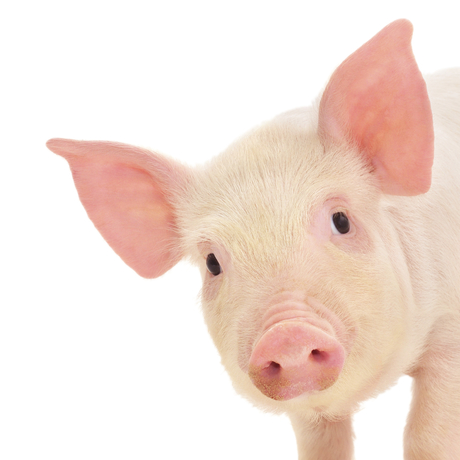UK pork tests positive for MRSA

The first evidence of the ‘superbug’ bacteria methicillin-resistant Staphylococcus aureus (MRSA) has been found in sausages and minced pork obtained from supermarkets in the UK.
A team of researchers analysed a total of 103 (52 pork and 51 chicken) pre-packaged fresh meat products, labelled as being of UK farm origin, from supermarkets in five different locations across England.
Two of the pork samples — one from sausages, one from minced pork — tested positive for MRSA; the sausage sample contained two strains of the bacteria.
The researchers stress that adequate cooking (heating above 71°C) and hygienic precautions during food preparation should minimise the likelihood of transmission to humans via contaminated pork. However, they argue that the discovery of MRSA in pork identifies a potential way that the bacteria can spread from farms to the wider population. There is evidence that these isolates are of animal origin — possibly through the use of antibiotics to treat or control infection in livestock.
As the tests use a highly sensitive method of detection of bacterial contamination, the numbers of MRSA bacteria present may be low, and cross-contamination from imported meat at the processing stage cannot be ruled out.
Dr Mark Holmes from the Department of Veterinary Medicine at the University of Cambridge said: “This is the first time that MRSA has been detected in retail meat products in the UK. It’s also usually pretty harmless and only causes health problems if it infects someone in poor health or gets into a wound.
“However, this does suggest that MRSA is established in our pig farms and provides a possible route of transmission from livestock, through those in direct contact with pigs, into the wider population.”
Dr Des Walsh, head of infections and immunity at the Medical Research Council, the primary funder of the study, added, “Studies like this are crucial not just to reveal concerns to human health through contaminated livestock, but to show resistance to antibiotics is a problem growing far beyond just humans. To win the fight against antimicrobial resistance, we need an all-hands-on-deck approach, and that’s why we’ve teamed up with leading experts in biological, social and others sciences in a joint initiative designed to find new solutions, fast.”
The research was published in Eurosurveillance.
Smart optical sensor detects ripeness for a quality drop
Queen Mary University of London researchers are developing a handheld, AI-powered grape ripeness...
Lighting up wine spoilage in real time with novel biosensor
A biosensor that glows when acetic acid is detected has been built by researchers to help...
Novel food processing technologies retain more nutrients in food
The potential of a range of modern techniques to improve the nutritional profiles of grain-,...










